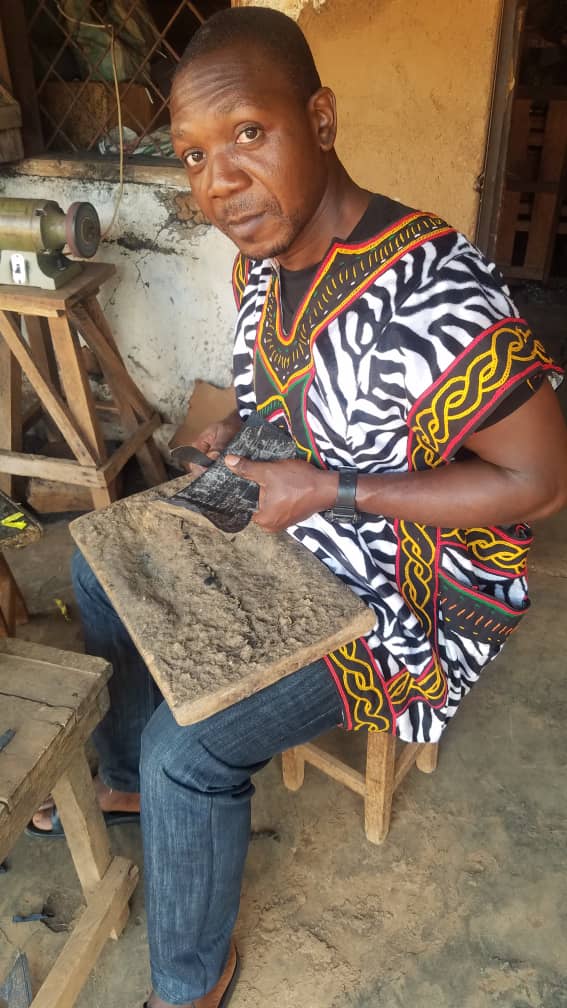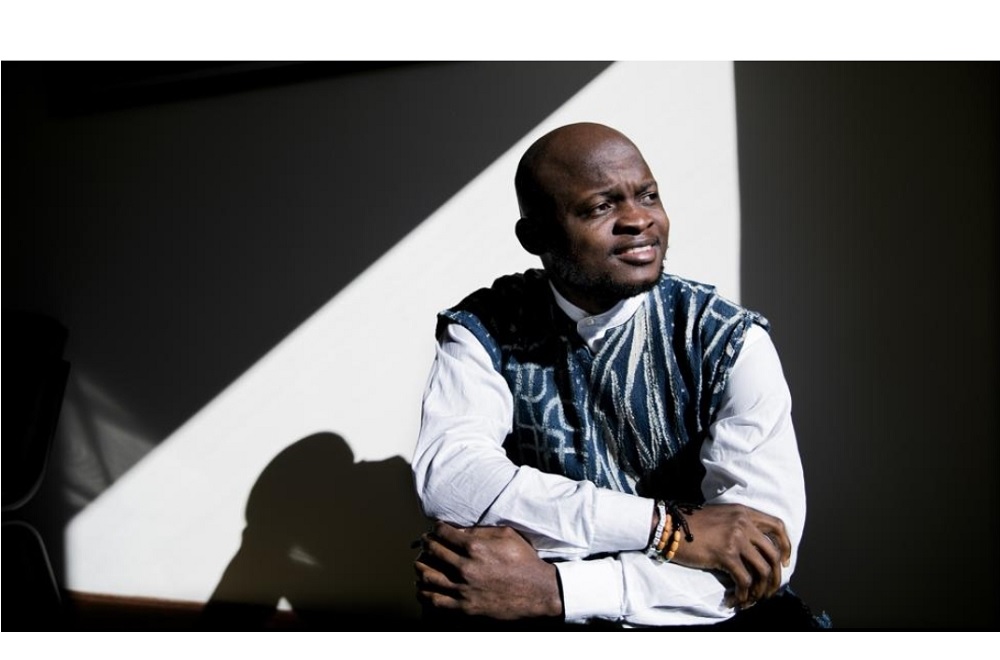Cameroonian activist Christian Achaleke is offering training to prisoners to produce sandals out of End-of-Life Tyres (ELTs).
The tyres are picked by young people and are transported about 20 miles outside Yaoundé where they are recycled into pairs of flip flops by prisoners who are otherwise addressed as Prison-preneurs.
Prison-preneurs recycle and produce sandals out of the ELTs, it takes about four hours to make one pair, and seven flip flops can be made from a normal size tyre.
For Achaleke, who considers himself a Cameroonian activist, the project is an opportunity for rehabilitation and it is helping solve an environmental problem at the same time. Cameroon has a poor waste management system which enables indiscriminate disposal, worn out and discarded tyres are routinely dumped on the streets, abandoned in running streams, piled up in landfills or regularly burnt in open places and can release toxic chemicals into the water bodies.
Achaleke says Cameroon is faced with waste management challenges and human capital development for those incarcerated for various offences.
“One of the things which I would like to state is the context of a country like Cameroon where we have a huge challenge as a country, when it comes to disposal of wastes”, he said. “When it comes to rehabilitation of young offenders. Its unfortunate to note that most of our prison facilities serve as punishment ground rather than a correctional facility where they get rehabilitated to prevent people who have committed crimes from committing crimes again.”

The initiative was first piloted in 2015, and then took full engagement in 2017 when Achaleke decided to work in prisons across Cameroon to improve the rehabilitation of prisoners, and saw a lot of his peers who were incarcerated, he claims that they weren’t imprisoned because of the crime they committed, but because the justice system is broken and when they come out of prison, they come out worse than they were before going to jail.
Having grown up in a violence plagued community of Fiango kumba, an English-speaking part of Cameroon, he wants to develop an initiative which became known as “Prison preneurship”, to build entrepreneurs in prison by getting into prisons and listening to prisoners.
While working in prison, he realised that the inmates have a lot of time and that they aren’t exposed to things that can develop them in contributing to key issues in the world. Achaleke said; “Considering that I am a global activist, I thought it wise to engage them in transforming discarded tyres and give more value to them, since we have difficulties disposing these tyres.
After being recycled by the prisoners, the rubber tyres become fashionable and professional looking products. Achaleke sees his work as a process of transforming ELTs and getting prisoners engaged, while also protecting the environment in line with the global conversation on climate change.
The Cameroonian activist helps to market them under the prison brand Creative Skills for Peace—a project for young violent offenders. He says the programme is his own way of promoting restorative justice, to restore the broken bond of persons convicted with their communities for them not to think that the prison is a place of torment.
“We want them to understand that it is not a tough type of punishment that takes away their freedom, potential support networks and strips away their identity. But a place for reformation.
The sandals costs between 8 to 15 pounds and they are sold internationally. The inmates receive more than 50 per cent of the profit for their upkeep while in prison and the rest is divided between the prison and the state.
The team has 3 people working within the initiative for the prison programme and they have volunteer trainers who go into the prison to train the inmates.
Achaleke hopes to expand and create vocational training centres where tyre recycling and upcycling would be done with refugees, displaced persons, physically challenged and other vulnerable groups of people in Cameroon.




















